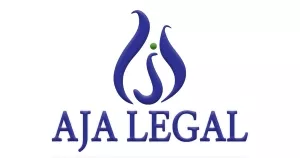In the recent judgment of Hon'ble Supreme Court ("SC") in Saranga Anilkumar Aggarwal Versus Bhavesh Dhirajlal Sheth & Others.1, SC dealt with a legal proposition concerning whether execution proceedings under Section 27 of the Consumer Protection Act, 1986 ("CP Act"), can also be stayed during an interim moratorium under Section 96 of Insolvency and Bankruptcy Code, 2016 ("Code")?
The present Appeal was filed by the Appellant who is the developer, being aggrieved by the final judgment and order dated August 10, 2018 passed by National Consumer Disputes Redressal Commission ("NCDRC") in CC/1362/2017 along with other connected matters, wherein the NCDRC allowed the complaints and directed the Appellant to complete construction, obtain the requisite occupancy certificate, hand over possession and imposed 27 penalties on the Appellant for deficiency in service by failing to deliver possession within reasonable time.
The respondent nos. 1 and 2, as decree holders, subsequently filed execution application of the aforesaid order, as the Appellant failed to comply with the directions of NCDRC. In the meantime, the corporate insolvency resolution process (CIRP) was commenced against the Appellant. Accordingly, it moved an application before NCDRC and sought to contest the execution on various grounds including insolvency proceedings, however, the same was rejected by NCDRC vide order dated February 7, 2024, holding that the consumer claims and penalty imposed did not fall within the moratorium under the Code.
NCDRC, thus, concluded that the interim moratorium under Section 96 of Code did not bar the continuation of criminal proceedings under Section 27 of the CP Act against the Appellant in the personal capacity as a guarantor. Aggrieved by the said order, the Appellant approached the Hon'ble SC for seeking stay on the penalty proceedings before the NCDRC, contending that an application under Section 95 of Code has been filed against the Appellant, thereby an interim moratorium under Section 96 of the Code is in place.
The Hon'ble SC, while deciding the appeal observed that there is a fundamental distinction between civil and criminal proceedings concerning a debt moratorium. While civil proceedings are generally stayed under Code, criminal proceedings, including penalty enforcement, do not automatically fall within its ambit unless explicitly stated by law. It was further observed that the penalties imposed by NCDRC are regulatory in nature and arise due to non-compliance with the consumer protection laws. They are distinct from "debt proceedings" under Code. It is further, observed that the moratorium under Section 96 of Code applies to individuals and personal guarantors, staying legal actions related to "debt" during the interim moratorium. However, this stay does not extend to regulatory penalties for non-compliance with consumer protection laws, as such penalties do not qualify as "debt" under the Code.
It was further observed that there is a clear distinction between the moratorium under Section 96 and moratorium under Section 14 of the Code, the former is limited in scope, staying only "legal actions or proceedings in respect of any debt". While corporate insolvency resolution process aims for a comprehensive resolution, individual insolvency focuses on restructuring personal debts and providing relief to the debtor.
Additionally, a blanket stay on regulatory penalties would undermine consumer protection laws, contradicting the legislative intent behind Section 96 of the Code. The moratorium under Section 96 of Code is intended to provide temporary relief to debtors by preventing certain proceedings till the resolution process. This protection is not absolute and does not cover all forms of liabilities, particularly those classified as "excluded debts" under Section 79 (15) of Code.
In the present case, the damages awarded by NCDRC are due to the deficiency of service by the Appellant and serves to compensate the consumers for loss suffered and to deter unethical business practices. Further, since such damages are covered under "excluded debts" as per Section 79(15) of Code, thus, the Appellant would not get the benefit of moratorium under Section 96 of Code. Furthermore, if damages arising from legal violations, consumer protection claims, or penalties imposed by courts and tribunals were to be shielded under the moratorium, it would create an unfair advantage for errant entities and individuals, allowing them to evade their legal obligations under the guise of insolvency. The Code, being a special law meant to balance the interests of all stakeholders, does not intend to provide relief to those who have been held liable for statutory breaches or misconduct.
The Judgment while clarifying the limited scope of interim moratorium under section 96 of the Code had upheld the integrity of consumer protection mechanisms and it reinforces the principle that insolvency laws should not be a shield against statutory obligations.
Footnote
1 Civil Appeal No. 4048 of 2024
The content of this article is intended to provide a general guide to the subject matter. Specialist advice should be sought about your specific circumstances.



